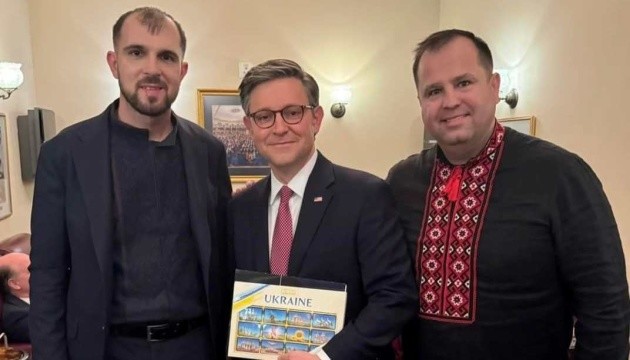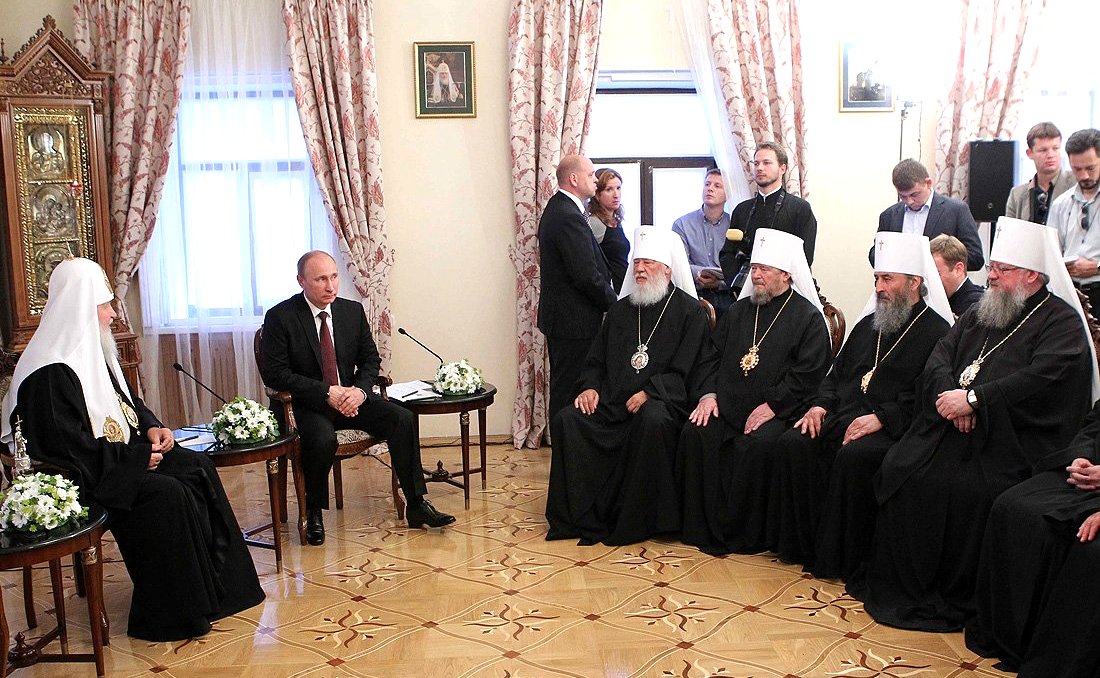"Dear brother, we have a war going on. A terrible war," Ukrainian Baptist Serhii Gaidarzhi pleaded in a video message to US House Speaker Mike Johnson. "If there were a missile to shoot down that drone, the drone wouldn't have flown into our house."
The appeal came days after a Russian strike leveled a residential building in Odesa in March 2024, killing 12 civilians, including Gaidarzhi's wife, Anna, and their four-month-old son.
Weeks later, Gaidarzhi stood face to face with Johnson at a prayer breakfast in Washington. Three days after hearing the Ukrainian pastor's story, Johnson finally gave the green light to a stalled $61 billion Ukraine aid package he had blocked for months. It passed.
The moment pulled back the curtain on an unlikely force shaping the US policy on Ukraine: Ukrainian evangelicals. A small minority back home, they've become both prime targets of Russia's brutality and some of Kyiv’s most effective messengers on Capitol Hill, breaking through to US lawmakers where Zelenskyy's team couldn't get a foot in the door.

"First they killed the pastors": Putin’s other war on Ukraine
Despite making up just 2–4% of Ukraine’s population, evangelicals have become one of the Kremlin’s top religious targets in occupied territories since 2014. One of the first signs came early in the war when four Pentecostal pastors were abducted and killed in Sloviansk — a chilling harbinger of what was about to come.
Since then, Russian troops have demolished or seized hundreds of evangelical churches, often converting them into military outposts. According to the Center for Strategic and International Studies, at least 206 Protestant churches — nearly a third of all religious sites Russia has attacked in Ukraine — have been damaged. In Luhansk Oblast, under Russian occupation since 2014, not a single Protestant church is still operating.
Newly occupied areas like Melitopol in Ukraine’s south, where evangelical churches once outnumbered Orthodox ones, have also been wiped clean. Across Russian-controlled Ukraine, Moscow is using every tool in the arsenal to stamp out non-Orthodox faiths: home raids, pastor deportations, church takeovers, and an all-out assault on "underground" congregations.
Moscow's priests of war: from Stalin's revival to Putin's crusade
The Russian Orthodox Church has long served as a handmaiden to empire — an unholy alliance with the Kremlin that dates back to the 15th century. When Constantinople fell, Moscow rushed to declare itself the "Third Rome", casting Russia as the rightful heir to global Christendom. That divine mandate fueled centuries of imperial expansion — until Soviet atheism briefly broke the spell.
However, in 1943, Stalin revived the Russian Orthodox Church to rally wartime unity and tighten state control, despite the USSR’s official stance on atheism. Since then, the Church has been deeply entangled with Soviet and later Russian intelligence, with its current leader, Patriarch Kirill, serving as a KGB agent in the 1970s.
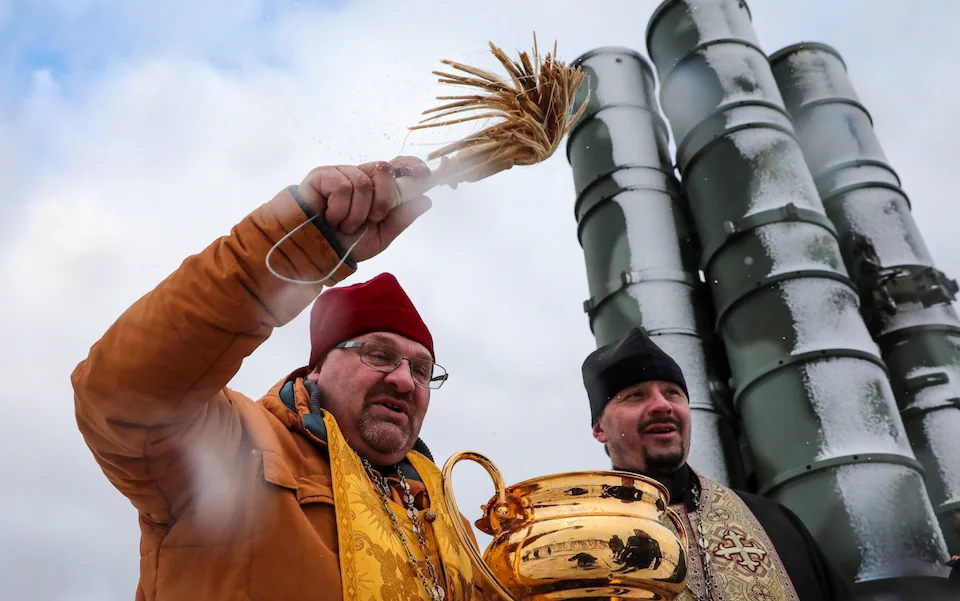
After the USSR’s collapse, the Kremlin leveraged this interdependence to revive its post-Soviet colonial vision known as the Russkiy Mir (“Russian World”) – an ideology that seeks to unite all peoples affiliated with language, culture, and Orthodoxy under Moscow’s rule, conveniently overlooking that this identity bond resulted from centuries of brutal colonization.
Putin has already weaponized this religious narrative to deny Ukraine’s nationhood, using the false claim that Russians and Ukrainians are "one people" as a central pillar of his invasion.
However, the Church’s role goes far beyond ideology. Since 2022, it has actively fueled the Kremlin’s war machine: blessing the invasion, aiding in the abduction of Ukrainian children, and using Kremlin-backed priests in Ukraine to spy and collaborate with Russian forces. Patriarch Kirill even promised Russian soldiers that dying in Ukraine would “wash away all their sins.”
Christians hunting Christians
In this paradigm, Russia’s persecution of evangelicals isn’t just about religious intolerance — it’s a deliberate campaign to wipe out any faith that challenges the Russian Orthodox Church’s monopoly on spirituality. As the Kremlin’s ideological enabler, the Church reinforces Putin’s imperial ambitions while helping purge “foreign” religious influences from Russian-controlled spaces.
Though post-Soviet Russia initially lifted its ban on religion under the guise of democratic reform, cracks appeared early. As far back as 1993, the Russian Orthodox Church successfully lobbied to ban foreign missionaries — a move that signaled the start of a broader crackdown.
The pressure escalated dramatically after 2017. Russia tightened existing laws to label minority faiths as “extremist,” force new churches to register under state-approved bodies, and outlaw independent missionary work under the 2019 Yarovaya laws. Evangelicals have been hit hardest — accounting for half of all those targeted. Their “crimes” can be as simple as leading prayers in a private home, punished with steep fines, forced re-education, or even prison.
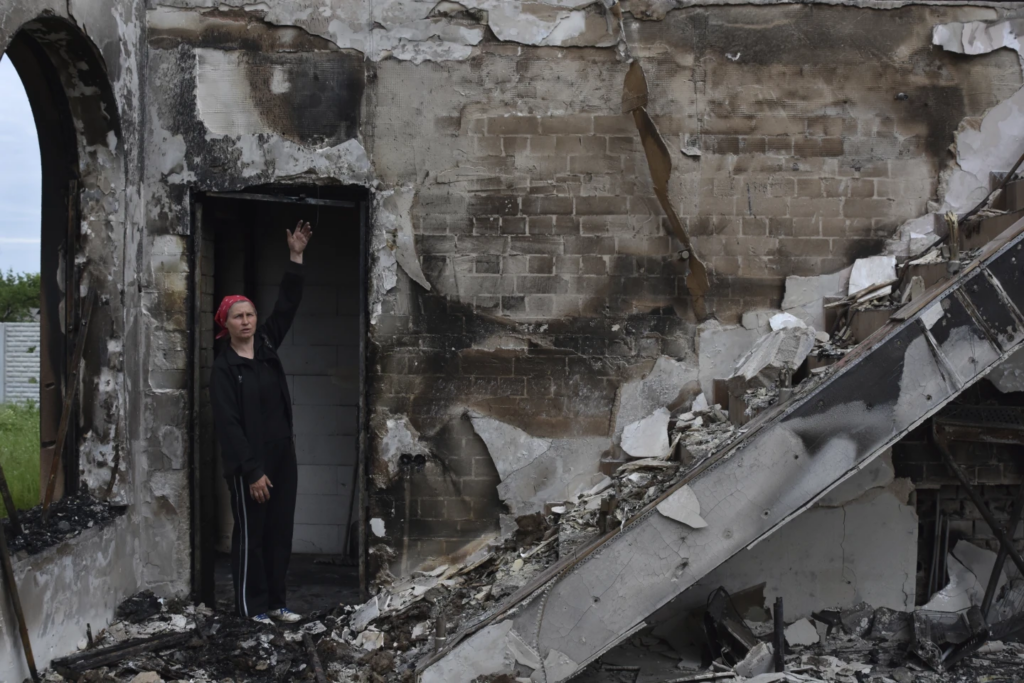
How US Christians missed Russia's war on faith
And yet, despite the scale of Russian persecution, most American evangelicals remain in the dark. In 2024, as Russian troops tortured and executed Protestant believers in occupied Ukraine, 80% of US evangelicals planned to vote for Donald Trump — a candidate whose rhetoric has repeatedly downplayed Ukraine’s plight.
If this reality broke through, it could reshape US policy. A poll by the Ukrainian Freedom Project found that awareness of evangelical persecution significantly increases support for Ukraine among GOP voters. But that awareness is sorely lacking: the April 2024 Ukraine GOP Primary Voter Survey showed that 66% of Republican voters knew little or nothing about Russia’s violence against Ukrainian Christians.
Trending Now
Instead, figures like Marjorie Taylor Greene and Tucker Carlson have steered the conversation toward defending the Ukrainian Orthodox Church of the Moscow Patriarchate — a branch of the Russian Orthodox Church — conveniently ignoring its complicity in Russia’s annihilation of Protestant communities.
Theologian Dmytro Bintsarovskyi charts the evangelical divide into four camps: appeasers, withdrawal advocates, cautious supporters, and staunch allies of Ukraine. Meanwhile, a rising Christian Nationalist movement views Putin's Russia with surprising warmth, seeing little problem with Russia’s religious coercion.
The 30% of voters that shape America's global stance
Since the mid-1970s, US evangelicals have transformed from an apolitical group into a powerhouse driving American foreign policy. Their backing has resulted in the adoption of some of the US landmark legislation like the International Religious Freedom Act (1998), the Sudan Peace Act (2002), and the North Korea Human Rights Act (2004).
With a Biblical mandate to support Israel, evangelicals have become its most steadfast allies in US politics, consistently backing its policies more than the general public.
In recent years, evangelicals have turned their focus to Ukraine, with organizations like the Ukraine Freedom Project leading the way. Led by Steven Moore, former chief of staff in the US House, the organization has pushed Russia’s persecution of Ukraine’s evangelicals into the global spotlight, even presenting it to the Helsinki Commission.
Meanwhile, the Southern Baptist Ethics and Religious Liberty Commission has also played a key role, pressuring House Speaker Mike Johnson to release the stalled Ukrainian aid package.
Most recently, evangelicals lobbied Trump to revive a program tracking abducted Ukrainian children. Driven by a massive voting bloc that makes up nearly 25-30% of US voters, their influence is hard to deny.
Battlefield chaplains take the fight to Congress
While largely focused on humanitarian work, many Ukrainian evangelicals have also taken on roles in chaplaincy and, occasionally, the military. With deep historical ties to the US evangelical community through missionary work, the Ukrainian faithful have the potential to play a key role in shaping American public opinion and support for Ukraine.
In early 2024, as American aid to Ukraine stalled, Ukrainian evangelical leaders made multiple trips to the US, meeting with prominent figures and teaming up with the Southern Baptists' Ethics and Religious Liberty Commission to advocate for Ukraine.
This effort reached a turning point when Baptists Pavlo Unguryan and Serhii Gadarzhi met and prayed with Speaker Mike Johnson, opening a direct channel where traditional diplomacy had faltered.
Mikhail Pavenko, a Ukrainian-American originally from Donetsk Oblast who has volunteered as a Protestant chaplain since 2015, has become one of the key advocates on Capitol Hill, meeting with staffers from Speaker Johnson's office.
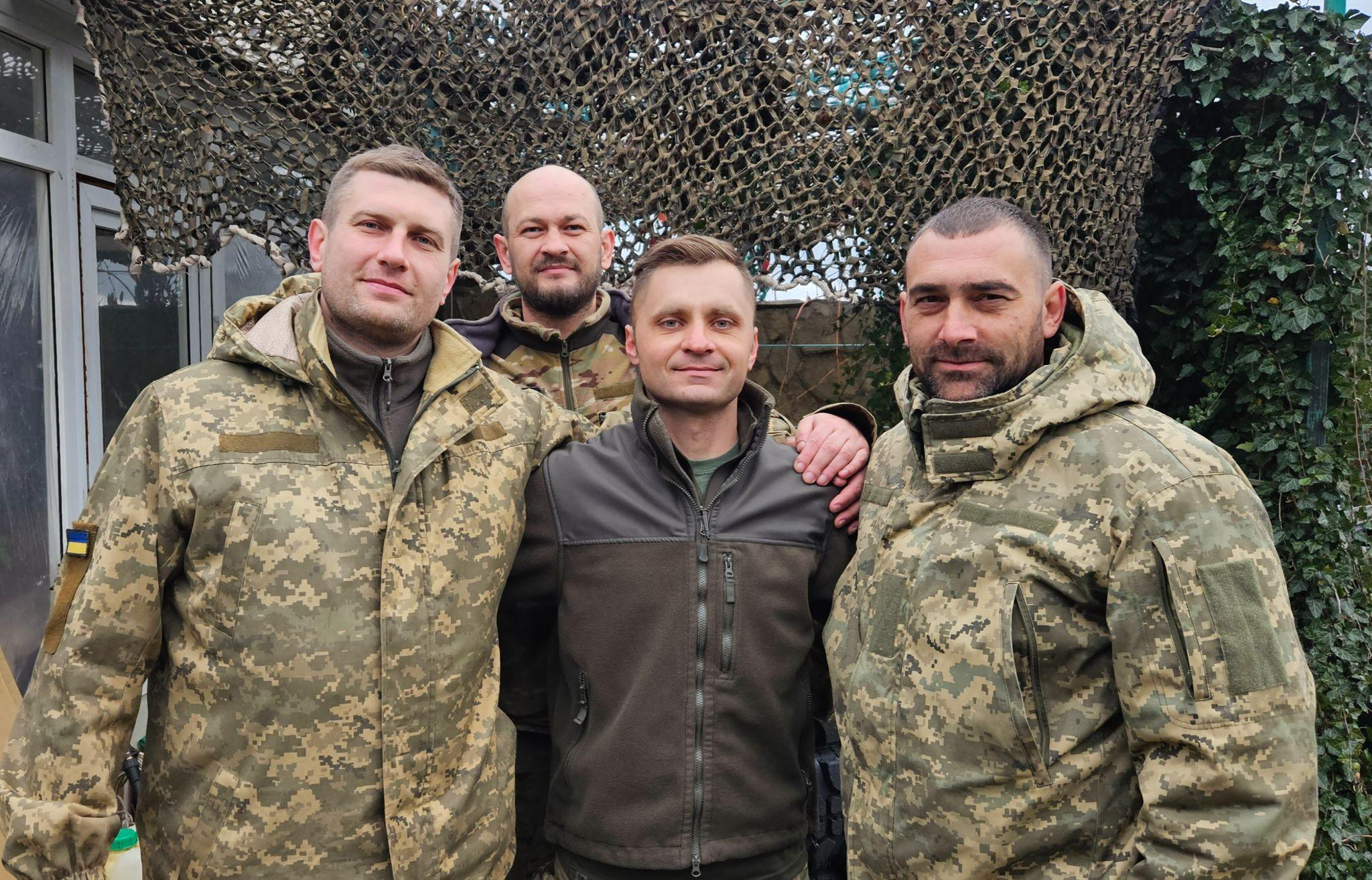
“Sadly, Russian propaganda has been effective at controlling the narrative within the GOP, but even that is starting to change,” Pavenko says. “Losing Ukraine to Russia would be disastrous for the West, and I believe American politicians are beginning to see that.”
Pavenko, whose family members were among the first killed by pro-Russian militias for their faith in 2014, is now at the forefront of outreach to the American believers. He insists Ukrainian evangelicals have a crucial role to play in sharing the story of Russian persecution with the American public.
“We need to work harder, and we need to pray and believe for God to perform a miracle for the nation of Ukraine,” he says. “The people of Ukraine have shown what it means to fight for freedom against a modern-day Hitler.”

